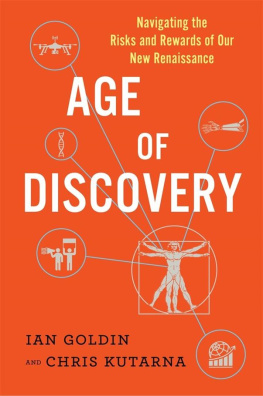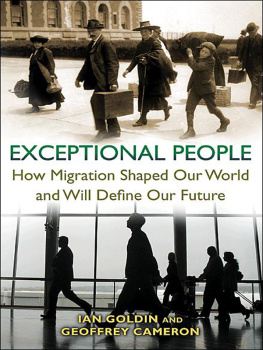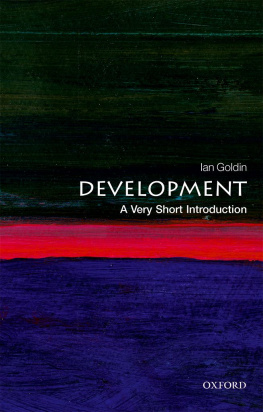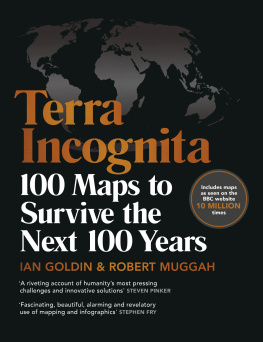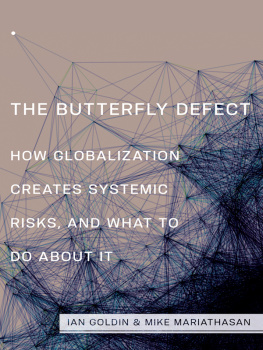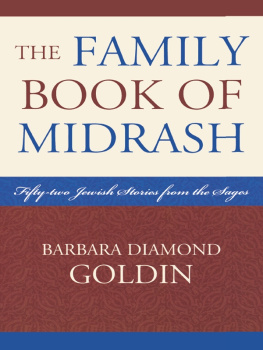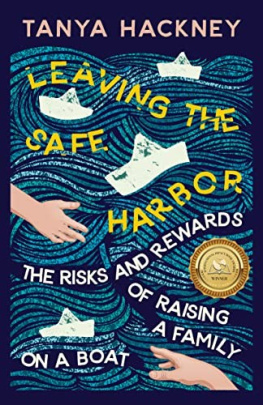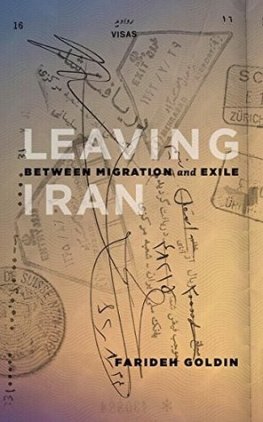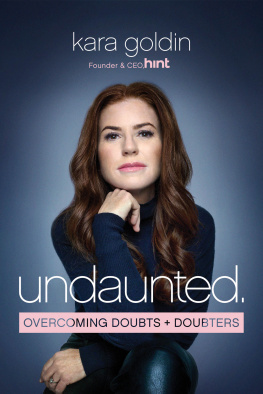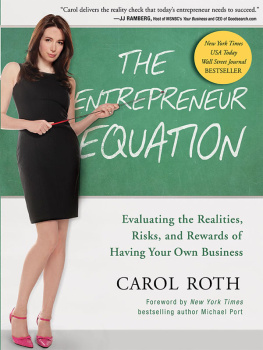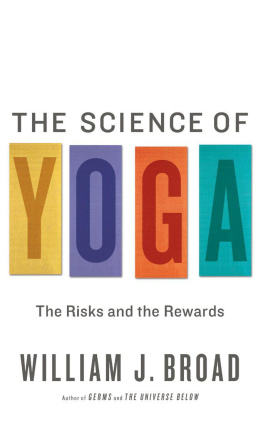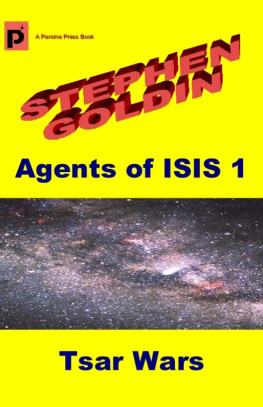Ian Goldin - Age of Discovery: Navigating the Risks and Rewards of Our New Renaissance
Here you can read online Ian Goldin - Age of Discovery: Navigating the Risks and Rewards of Our New Renaissance full text of the book (entire story) in english for free. Download pdf and epub, get meaning, cover and reviews about this ebook. year: 2016, publisher: Bloomsbury, genre: Politics. Description of the work, (preface) as well as reviews are available. Best literature library LitArk.com created for fans of good reading and offers a wide selection of genres:
Romance novel
Science fiction
Adventure
Detective
Science
History
Home and family
Prose
Art
Politics
Computer
Non-fiction
Religion
Business
Children
Humor
Choose a favorite category and find really read worthwhile books. Enjoy immersion in the world of imagination, feel the emotions of the characters or learn something new for yourself, make an fascinating discovery.
- Book:Age of Discovery: Navigating the Risks and Rewards of Our New Renaissance
- Author:
- Publisher:Bloomsbury
- Genre:
- Year:2016
- Rating:3 / 5
- Favourites:Add to favourites
- Your mark:
- 60
- 1
- 2
- 3
- 4
- 5
Age of Discovery: Navigating the Risks and Rewards of Our New Renaissance: summary, description and annotation
We offer to read an annotation, description, summary or preface (depends on what the author of the book "Age of Discovery: Navigating the Risks and Rewards of Our New Renaissance" wrote himself). If you haven't found the necessary information about the book — write in the comments, we will try to find it.
Age of Discovery: Navigating the Risks and Rewards of Our New Renaissance — read online for free the complete book (whole text) full work
Below is the text of the book, divided by pages. System saving the place of the last page read, allows you to conveniently read the book "Age of Discovery: Navigating the Risks and Rewards of Our New Renaissance" online for free, without having to search again every time where you left off. Put a bookmark, and you can go to the page where you finished reading at any time.
Font size:
Interval:
Bookmark:
Age of Discovery
Navigating the Risks and Rewards of Our New Renaissance
Ian Goldin and Chris Kutarna

St. Martins Press
New York
Thank you for buying this St. Martins Press ebook.
To receive special offers, bonus content, and info on new releases and other great reads, sign up for our newsletters.

Or visit us online at us.macmillan.com/newslettersignup
For email updates on Ian Goldin, click here.
For email updates on Chris Kutarna, click here.
The author and publisher have provided this e-book to you for your personal use only. You may not make this e-book publicly available in any way. Copyright infringement is against the law. If you believe the copy of this e-book you are reading infringes on the authors copyright, please notify the publisher at: us.macmillanusa.com/piracy .
To Olivia and Alex
And their flourishing in the New Renaissance
Ian Goldin
To my father
The most Renaissance man I know
Chris Kutarna
The moment were in
If Michelangelo were reborn today, amidst all the turmoil that marks our present age, would he flounder, or flourish again?
Every year, millions of people file into the Sistine Chapel to stare up in wonder at Michelangelo Buonarrotis Creation of Adam . Millions more pay homage to Leonardo da Vincis Mona Lisa. Through five centuries, we have carefully preserved such Renaissance masterpieces, and cherished them, as objects of beauty and inspiration.
But they also challenge us.
The artists who crafted these feats of genius five hundred years ago did not inhabit some magical age of universal beauty, but rather a tumultuous momentmarked by historic milestones and discoveries, yes, but also wrenching upheaval. Their world was tangling together in a way it had never done before, thanks to Gutenbergs recent invention of the printing press (1450s), Columbuss discovery of the New World (1492) and Vasco da Gamas discovery of a sea route to Asias riches (1497). And humanitys fortunes were changing, in some ways radically. The Black Death had tapered off, Europes population was recovering, and public health, wealth and education were all rising.
Genius flourished under these conditions, as evidenced by artistic achievements (especially from the 1490s to the 1520s), by Copernicuss revolutionary theories of a sun-centered cosmos (1510s), and by similar advances in a wide range of fields, from biology to engineering to navigation to medicine. Basic, common-sense truths that had stood unquestioned for centuries, even millennia, were eroding away. The Earth did not stand still. The sun did not revolve around it. The known world wasnt even half of the whole. The human heart wasnt the soul; it was a pump. In mere decades, printing boosted the production of books from hundreds to millions per year, and these weird facts and new ideas traveled farther, faster than had ever been possible.
But risk flourished, too. Terrifying new diseases spread like wildfire on both sides of the now-connected Atlantic. The Ottoman Turksbacked by a new weapon, gunpowderconquered the eastern Mediterranean for Islam in a stunning series of land and naval victories that cast a threatening gloom over all of Europe. Martin Luther (14831546) leveraged the new power of print to broadcast blistering condemnations of the Catholic Church, igniting religious violence continent-wide. The church, which had endured every challenge to its authority for over a thousand years to become the most important and pervasive authority in European life, split permanently under the strain.
Such was the age in which, on September 8, 1504, in Florence, Italy, Michelangelo unveiled his statue of David in the citys main square. Standing over five meters tall, weighing in at over six tons of fine Carrara marble, David was an instant monument to the citys wealth and to the sculptors skill. See Figure 1-1.
David and Goliath was a familiar Old Testament story, about a brave young warrior who, in true underdog fashion, improbably defeated a giant foe in single combat. But with hammer and chisel, Michelangelo fixed into stone a moment that no one had seen before. It must have caused some confusion for those present at the unveiling. Davids face and neck were tensed. His brow was furrowed and his eyes focused determinedly upon some distant point. He stood, not triumphant atop the corpse of his enemy (the standard portrayal), but ready, with the implacable resolve of one who knows his next step but not its outcome. And then they saw the artists meaning clearly: Michelangelo carved David in that fateful moment between decision and action, between realizing what he must do and summoning the courage to do it.
They knew that moment. They were in it.
The past is prologue
We are in it, too.

Figure 1-1. A moment etched in marble.
Michelangelo Buonarroti (15011504). David detail. Florence. Photo credit: Art Resource.
The present age is a contest: between the good and bad consequences of global entanglement and human development; between forces of inclusion and exclusion; between flourishing genius and flourishing risks. Whether we each flourish or flounder, and whether the twenty-first century goes down in the history books as one of humanitys best or worst, depends on what we all do to promote the possibilities and dampen the dangers that this contest brings.
The stakes could not be higher. We each have the perilous fortune to have been born into a historic momenta decisive momentwhen events and choices in our own lifetime will dictate the circumstances of many, many lifetimes to come.
Yes, it is the conceit of each generation to think so, but this time its true. The long-term facts speak more loudly than our egos ever could. Humanitys shift into cities, begun some 10,000 years ago by our Neolithic ancestors, crossed the halfway mark in our own lifetimes. For the first time ever, the number of poor people in the world has plummeted (by over 1 billion people since 1990) and the overall population has swelled (by some 2 billion) at the same time. Scientists alive today outnumber all scientists who ever lived up to 1980, andin part thanks to themaverage life expectancy has risen more in the past 50 years than in the previous 1,000.
In the short term, too, history is being made. The Internet, effectively non-existent 20 years ago, linked 1 billion people by 2005, 2 billion people by 2010 and 3 billion people by 2015. Now, over half of humanity is online. China has erupted from autarky to become the worlds biggest exporter and economy. India is close behind. The Berlin Wall is gone, and the clash of economic ideologies that defined the second half of the twentieth century is gone with it. All this feels like old news when set against the headlines since the turn of the new millennium: 9/11; devastating tsunamis and hurricanes; a global financial crisis that struck dumb the worlds highest-paid brains; a nuclear meltdown in hyper-safe Japan; suicide bombings in the heart of Paris, City of Love; riots over inequalityand happier events like the explosion of mobile and social media, cracking the human genome, the advent of 3D printing, the breaking of long-standing taboos such as gay marriage, the detection of gravitational waves and the discovery of Earth-like planets orbiting nearby stars.
It seems every day we wake up to a new shock. And shock itself is the most compelling evidence that this age is very different, because its data that comes from within. Shock is our own personal proof of historic changea psychic collision of reality and expectationsand it has been the relentless theme of all our lives. It agitates and animates us. It will continue to do so. Right now we dont talk much about geo-engineering, organic energy, super-intelligent machines, bioengineered plagues, nano-factories or artificial human chromosomes, but someday soonsurprise!it may seem that we talk about little else.
Next pageFont size:
Interval:
Bookmark:
Similar books «Age of Discovery: Navigating the Risks and Rewards of Our New Renaissance»
Look at similar books to Age of Discovery: Navigating the Risks and Rewards of Our New Renaissance. We have selected literature similar in name and meaning in the hope of providing readers with more options to find new, interesting, not yet read works.
Discussion, reviews of the book Age of Discovery: Navigating the Risks and Rewards of Our New Renaissance and just readers' own opinions. Leave your comments, write what you think about the work, its meaning or the main characters. Specify what exactly you liked and what you didn't like, and why you think so.

